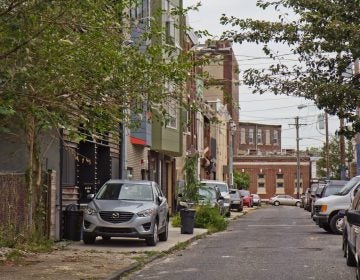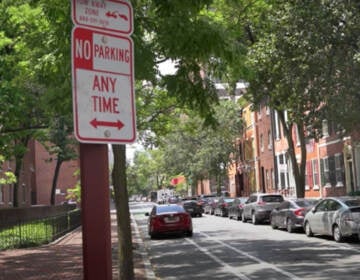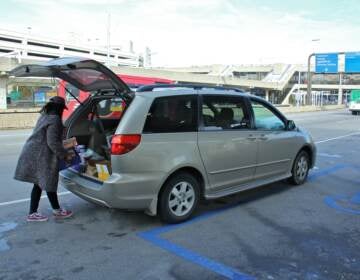Parking Authority plan to put billboards on neighborhood parking lots contested
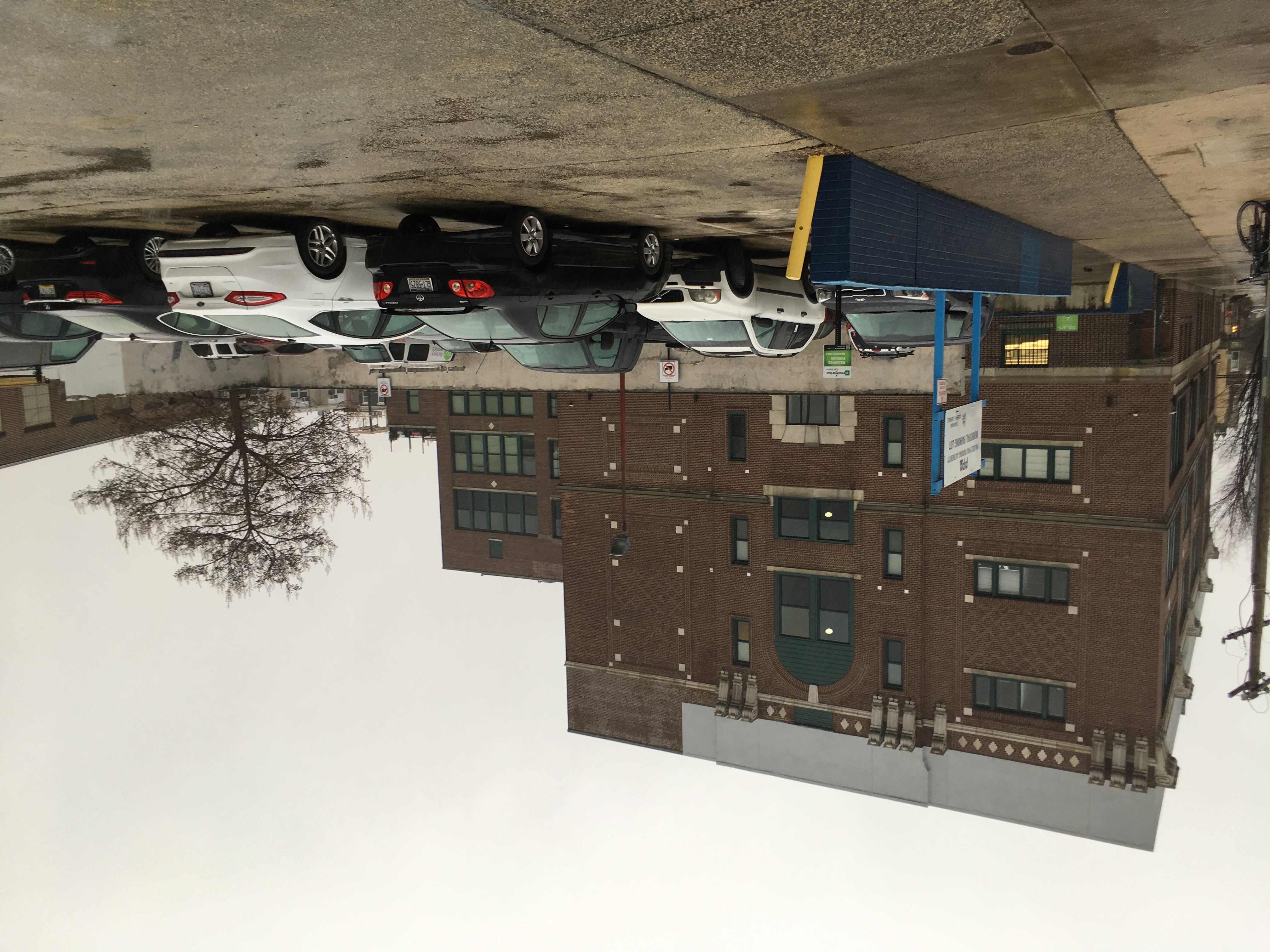
The Philadelphia Parking Authority (PPA) wants to make a little extra cash by selling advertising space in a handful of its parking lots and garages. Community activists, who don’t want billboards in their rowhouse neighborhoods, have other ideas.
The PPA’s plans are several years in the making. In 2015, the state-run authority entered into an agreement with the Bayberry Media company to post signs in a handful of Center City garage properties. Earlier this year the Parking Authority and Bayberry Media began the process of expanding these advertisements into six neighborhood parking lots, but the Art Commission pumped the brakes on the first of these proposals and brought the effort to a halt.
Now local activists affiliated with the urbanist PAC 5th Square are trying to make sure the proposal doesn’t start moving forward again.
Through a Right-To-Know request, 5th Square obtained nearly 150 pages of documents from PPA earlier this year. These include a map of 11 prospective locations under consideration in 2010, renderings of where the ads would be placed, and emails between the PPA and Bayberry Media (which promotes itself as: “the world leader in urban street level media”).
Now the PPA plans to post 14 signs in six surface parking lots. These locations include one at 7th and Fitzwater streets in Bella Vista, one around the corner Jewelers’ Row, two on Passyunk Avenue, and a lot behind the Parkway Central Branch of the Philadelphia Free Library.
The flash point, however, is the proposed signage at 1339 South 12th Street. A near neighbor to that South Philly lot, Dena Driscoll, is appealing the permit issued by the Department of Licenses and Inspections that would allow the billboards.
“To have a billboard pop up with no community input in an almost completely residential area is a little ridiculous,” says Driscoll, a co-chair of 5th Square. “The biggest thing for me is we don’t know what this billboard is going to look like. We only know the sizing because of a Right-to-Know request. And they are going to be able to advertise whatever they want.”
Driscoll said she fears ads for alcohol or junk food could adorn the parking lot on 12th Street, despite its presence across the street from a public park and its proximity to two schools. Driscoll said she walks past the lot with her kids every day and thinks the billboards, and those proposed for other neighborhoods, will be a public nuisance.
In January the Philadelphia Art Commission did not support the PPA’s proposal for commercial signage. The commissioners were skeptical of the PPA’s argument that because the South Philadelphia site previously sported advertising it therefore did not require a variance to place a new billboard there.
The PPA still holds that position.
“There have been signs up there previously for a number of years,” says Martin O’Rourke, a spokesman for the authority. “The income generated from the signs goes towards the upkeep of the neighborhood lots, and that’s been happening for years. But ultimately it’s a decision the zoning board will make.”
The Department of Licenses and Inspections, for its part, says that the PPA’s argument may not be correct, but that doesn’t make new signs automatically illegal.
“If it was an actual advertisement there before, we do not think it was legal,” says Karen Guss, a spokesperson with the Department of Licenses and Inspections. “Do we have perfect records of every sign in town? No. But there’s nothing telling us it would have been legal unless they were advertising themselves–park here.”
But Guss says they could be allowed to have an advertisement there now, because of Council President Darrell Clarke’s municipal sign ordinance.
Driscoll’s appeal contends that the PPA’s permits were not posted within five days of permit issuance. When they were posted, she claims that the language was illegal because the permit got posted eight feet above street level where it was illegible to passersby. (The PPA also placed the white permit on a white signboard, which made it even harder to spot.)
Driscoll also argues that it is illegal to place an advertisement within 200 feet of a park without approval of the Commission on Parks and Recreation.
According to the 2015 emails between PPA and Bayberry, each ad space would net the authority at least $200 per sign per month, with or without advertising, or 25 percent of the net revenue collected. All of the revenue generated will be directed to the authority’s Off-Street Operations Department to maintain the properties in question. None would be allotted to the school district or to other uses.
As of January, there were 14 billboards in four Center City garages, producing $60,000 in 2017. There are 14 additional signs planned for the six neighborhood lots, which are projected to produce $140,000 annually.
“It’s a bad process, considering how this would blight communities with no input from residents,” says Jake Liefer, a 5th Square co-chair who filed the right-to-know request.
On Friday, 5th Square released an online petition against the ads. As of Monday evening, 639 people had signed. Driscoll’s ZBA hearing is scheduled for 2:00 p.m. on May 10.
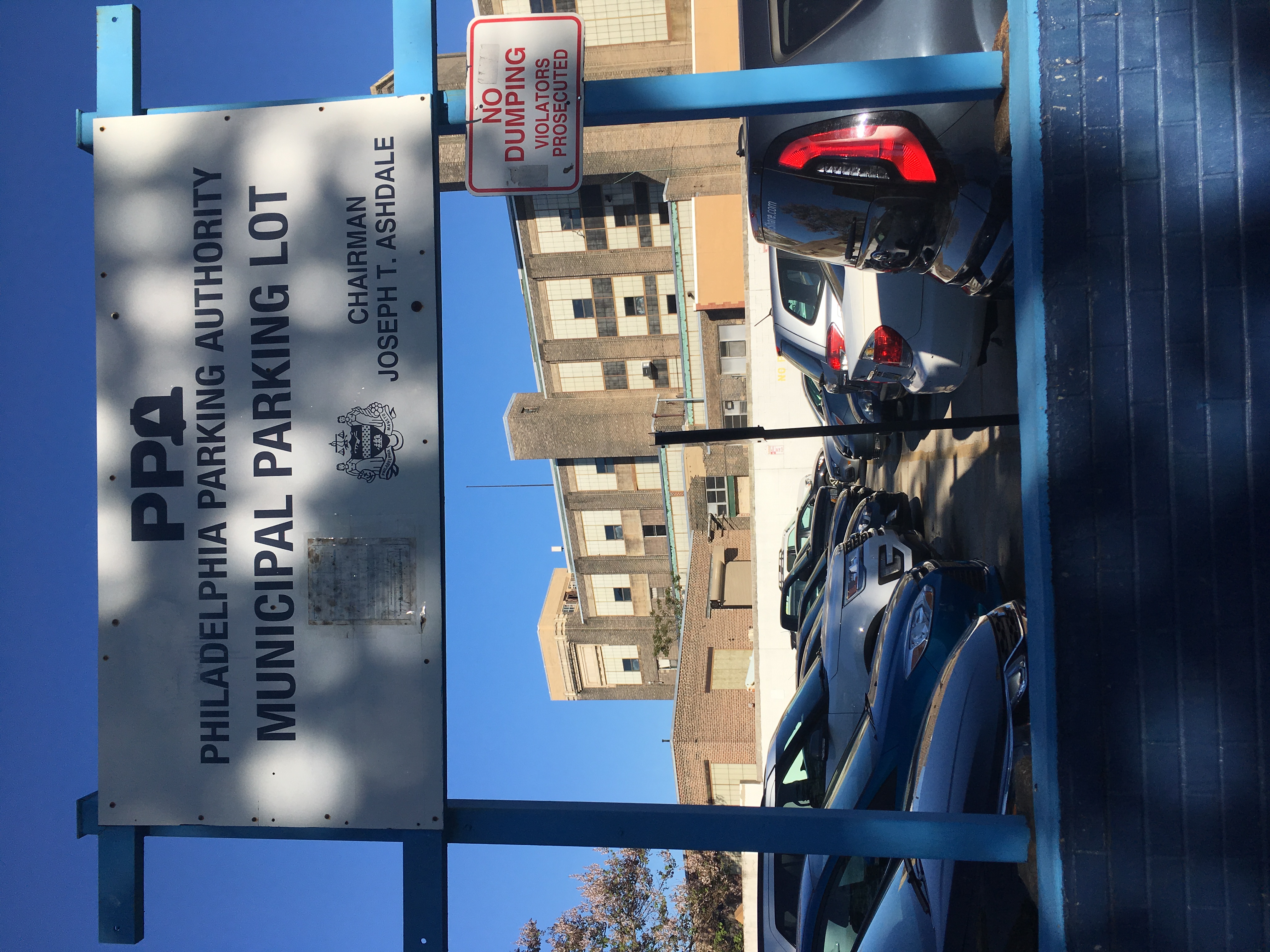
WHYY is your source for fact-based, in-depth journalism and information. As a nonprofit organization, we rely on financial support from readers like you. Please give today.




